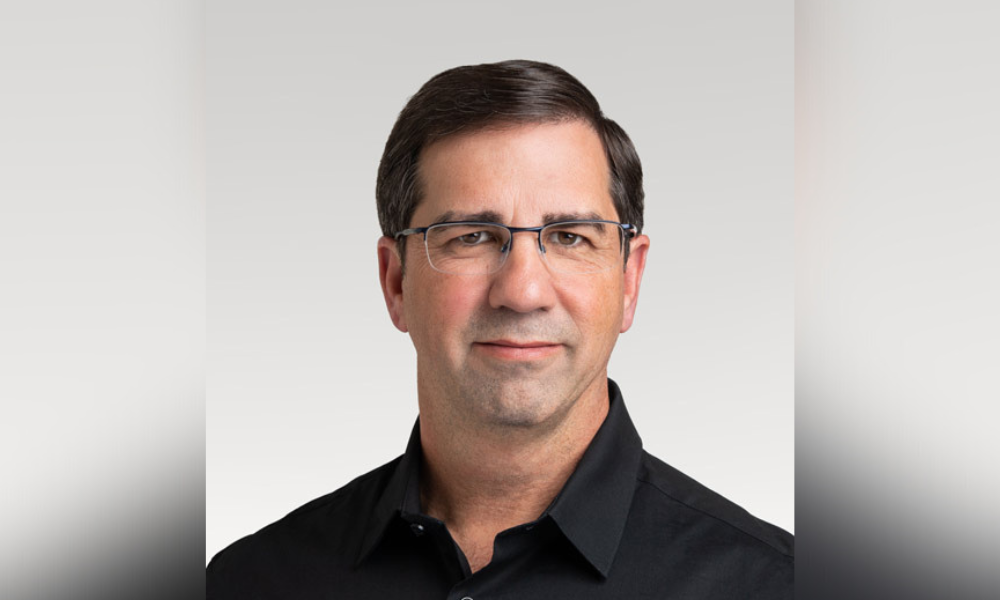
QRails CEO explains how earned wage access solutions add value to open enrollment programs

This article is provided by QRails.
Today’s workforce is experiencing a good news/bad news scenario.
On one hand, the job market is solid with unemployment at 3.6% in May 2022, according to the U.S. Department of Labor. That’s the lowest it has been since the pandemic began. On the other hand, record-high inflation at 9.1% has driven the prices up – from gasoline to utilities to food – and pocketbooks feel the pinch. Plus, with the threat of an economic recession looming large, Americans are uneasy as they face increased economic stress.
As human resources managers and directors plan for the upcoming open enrollment period, it would be wise to provide benefits that can help ease workers’ financial woes. One to consider an earned wage access (EWA) or payroll card solution that helps support employee financial wellness, regardless of whether they’re hourly, salaried, gig or a contractor.
Earlier this year, Bankrate found through a telephone survey of 1,000 adults that 56% of respondents would have to incur debt to foot an emergency $1,000 bill. Another report reveals 61% of Americans live paycheck to paycheck. Forty-two percent of earners bringing in $100,000 or more lived paycheck to paycheck in December 2021, up from 39% in May 2021. This situation isn’t just experienced by employees with low-wage jobs. And it spans all age groups.
A study conducted a few months before the pandemic found productivity loss and absenteeism surrounding financial anxiety cost companies an annual $1,900 per employee. That number has likely gone up. However, employer-provided financial wellness programs and innovative payroll solutions can help improve stress, on-the-job productivity and retention.
Such a program, which HR could roll out in the upcoming benefits enrollment period, could feature financial literacy to help employees improve spending habits, pay down debt and get into – or strengthen – the habit of saving. It could span everything from financial coaching to a digital education portal to a holistic financial planning action plan to help employees better achieve their monetary goals.
To further support employees’ financial wellness journeys, HR leaders can offer payroll cards, also referred to as pay cards, to their employees as an alternative for traditional paper checks. These cards work just like a debit card, but instead of receiving one’s paper check and having to take it to the bank to deposit, a pay card gives employees immediate access to their earned wages on payday.
A financial wellness program could also encompass EWA, also known as on-demand pay, which provides instant access to wages so employees can tap into earnings when they need them rather than waiting for a customary two-week or monthly pay cycle. Plus, with pay cards and EWA, employees don’t even need a bank account. These solutions come in the form of a digital or physical card for the employee to use to access their income on or before payday – depending on which offering is in place. And funds can often be managed through an accompanying app.
According to Understanding Earned Wage Access and Payroll from the American Payroll Association, EWA solutions can help employees better manage the misalignment of their expenses between paydays. When used effectively, they help them gain greater financial security and flexibility. The report also suggests a well-implemented EWA program can greatly improve employee retention and become a successful means to providing workforces with financial awareness, progress and wellness.
Employees desire and appreciate EWA. A 2021 study found 90% of workers surveyed want flexible pay and approximately 15 million employees have EWA. Further, more than three-quarters of those using EWA indicate that it helps decrease stress.
And why shouldn’t employees get their money right after they’ve earned it? In today’s world, people are used to getting a variety of on-demand services, from meals to rideshares to their favorite TV shows and movies. EWA works in a similar fashion – almost like a money center in the palm of your hand.
The service is free to employers. And while some on-demand pay providers charge employees to use the app or card, others cost nothing.
An EWA report conducted in 2021 shows EWA services are the third most popular benefit employers can offer, coming in after healthcare and 401(k) plans. By offering a tool like EWA, referred to as a “lifeline for those without credit,” a business can show it cares about the financial wellness of its workers, which helps companies attract and keep top talent.
As HR departments finalize open enrollment programs and consider new employee benefits, know a flexible EWA option supports workers or all types and incomes along their journeys toward financial wellness. It also helps relieve financial stress exacerbated by inflation and a potential recession.
EWA is the future expectation of how today’s on-demand society wants paid. It can be a way to stand out from the crowd in a tight labor force and one of the benefits that help make you an employer of choice.
Brian Brinkley has over 30 years of experience in enterprise and start-ups. He is a leader in omnichannel commerce and digital payments technology. Brian founded Zave Networks which was acquired by Google in 2011 and became a key component of Google Wallet. Brian has held executive roles at Sprint PCS and Lucent Technologies. Brian joined QRails as CTO in 2019 and was asked to lead QRails growth strategy as CEO in 2021.